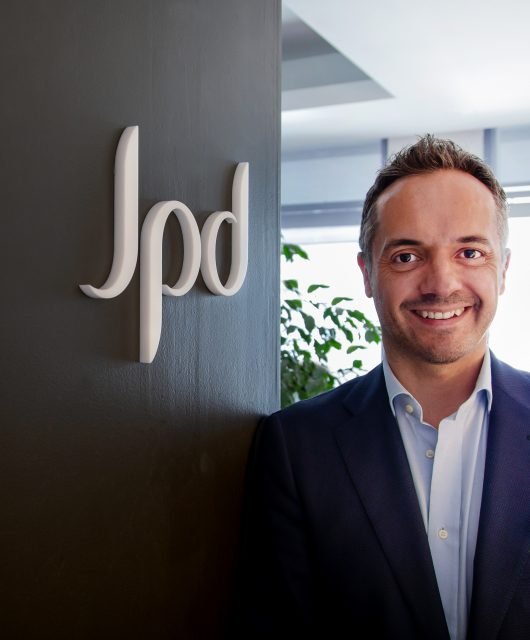Navigating A Brand Crisis: Q&A With MSL Middle East’s Hala Samy
Brands are constantly challenged with a diverse magnitude of crises that erupt from the evolving market dynamics and consumer needs . Some brands are able not only to survive a crisis but also navigate it into a PR win, emerging stronger than ever, while others are destroyed, forced into a merger or even an exit. Between brand familiarity and brand favourability, lies their ability to leverage these crises. The Brandberries interviewed Hala Samy, Regional Communication Director of MSL Middle East, for her take on navigating a brand crisis.
BB: Reputation is considered one of the brand’s most valuable assets. One of the core areas where brands and PR cross paths is reputation management. How do PR Agencies help brands build a solid and credible reputation ?

HS: Let’s start by defining what is Reputation Magnement: It is attempting to change public perception about an organizing or brand. It is simply about perception.
Building a credible reputation does not come over night but a long term process that the agency and brand team work very closely together to establish.
- The first most important step is to understand and monitor what stakeholder’s (media/influencers/customers, employees ..etc.) perception about our brand is. This step is the base of our plan.
How do we help brands monitor what is being said about them?
- Social Media monitoring is very important as consumers are very vocally now about their opinions online
- Also closely monitoring other platforms like TV and Print for any mentions or industry related news.
- Media audits: Also understanding what key media think of our brand/ cooperation as well as image vs competitors is very important .
Now that we have a clear perception of our stakeholders, it’s time to devise a response plan .
- To devise a plan : it is important to have a clear objective on what we want to communicate/achieve which usually fall into :
- Building an Image : for new client who do not have an established image yet
- Maintaining an existing image: for clients who have a positive an established reputation and our aim is to maintain it
- Recovering : usually when a brand has been hit by a crisis or bad reviews or does not have a good perception due to recent circumstances
There is usually no right or wrong plan that fits all but working closely with brand team/organizations to draft a plan that meets their vision is crucial to our success.
BB: Many brands are faced with crises that can give a hard blow to their reputation. Effectively managing crises when they arise can become a make it or break it to any brand. Can you give us some insight on what are they pillars of an effective crisis magnement strategy ?
HS: A common mistake lots of organization /brands make is that they wait until a crisis has already happened to start approaching a PR agency to help them recover.
They Key to an effective crisis managements starts way before the crisis happens. If a brand is prepared and already has a strategy in place, they are on step ahead.
How do you be prepared for a crisis ?
1- Close and ongoing monitoring of ( social media/online reviews, your own platforms, TV& print..etc) . Your PR agency can help you decide on the best monitoring agencies and alert you once any potential issues happen .
2-Develop a clear strategy with your PR agency and step by step action plan that covers every scenario that could happen
3-Assign A Crisis team : a crisis team needs to be assigned with the help of your PR agency and media trainings to be conducted to those who will be required to do public talking .Your PR agency can help with conducting media trainings as well.
4-Take Action : Once you are faced with a crisis and you have your monitoring system in place/team assigned and strategy ready as well as key statements, it is time to Take action
- Taking action can sometimes mean NOT TO TAKE ACTION. It requires being patient and monitoring closely the situation/sentiment without making any statements as any miscalculated response can make things worse.
- If things develop and start becoming more viral and are picked by media and key Influencers. It is then time to decide on strategy and update your statement.
5-Reivew and Learn ; once crisis is over it is important to always analyze your plan and focus on developing a reputation magnement plan.
BB: The digital transformation age has given reputation and crisis magnement a whole new dimension. Reputation can be affected negatively with one single social media post. In a nutshell, and from MSL’s strategy manual, what are the dos and donts when handling a virally-blasted crisis ?
HS: Unfortunately we live in a world where brands no longer have a control of what is being said about them. Online platforms and social media have given consumers a new dimension to become more vocal and clearly shout out their options whether negatively or positively about brand they use.
Online Word of mouth is a very important as consumers now trust other consumers reviews vs brand advertising
The Basic Do’s for Handling virally blasted crisis :
- Monitor closely what is being said on all platforms / sentiment and if is picked by other channels/influencers.
- Handle negative comments delicately : responding in a polite and professional manger gives you a chance to win unhappy consumers over with the right response.
- Provide constructive replies to negative comments and complains
- Always show empathy and willingness to solve issue
- being straight forward and honest especially with crisis management and knowing all the facts before acting
- Acting with speed is necessary today given the environment.
The Basic Don’ts
- Don’t delete any negative comments/reviews
- Don’t make too many statements unless you are fully aware of the situation
- Criticize or judge consumers
BB: Brands work in different cultural contexts. Does cultural differences affect crises magnement?
HS: Of course cultural differences are an integral part of crisis magnement since in times of crisis, a quick rapport and trust needs to be developed both verbally and non-verbally and it is very important to demonstrate an acceptance of cultural difference. A clear understanding of race, ethnicity, language, nationality, religion and even political and economic local situation is very important in dealing with the crisis .
It is always recommended for brands to work with local agencies that have a clear understanding of the market and culture as well as assigning local spokesperson when it comes to handling local crisis and addressing the public.
BB: In your opinion , what would be a perfect example of a brand that was faced by a crisis and was able to turn into a PR win in the middle east ?
HS: One of the perfect examples of how a brand managed to turn a crisis into a PR win is TBS 2015 Om Ali crisis ( famous Egyptian bakery shop). Since TBS opened it has been known to stand out and always present innovative items.
Back in 2015 after they have acquired another dessert brand , they introduced a New Croissant OM Ali For Ramadan. Everyone expected it to be a hit and posts on social media were all anticipating and inquiring if anyone tried it .
But suddenly after the 1st week of the launch, Social media broke out with lots of posts from consumers that were complaining about serious food poisoning and being hospitalized . The Buzz become more and TBS Facebook page was suddenly bombarded by angry & furious customers who had severe cases of vomiting, fever ,diarrhea and some were even submitted to the hospital. What could have been a pure crisis that could shut their business down was a pure win on their side.
How did they do it?
- Quick to respond/ Showing Empathy : The first action TBS did was to announce they were discounting the product and will investigate the problem .”We apologize for any inconvenience we may have caused some of our loyal customers.” Not only that but they contacted each and every customer and provided them with free medical services.
- Willingness to solve issue and transparency : Kept consumers updated on what was happening and that they are investigating
- Acknowledge their mistake
- Knowing all facts before responding : once they knew what happened they informed their consumers with full details why this happened, full facts and how they will prevent it from happening again.
We are now in 2018 and TBS is running even stronger and with a big fan base of loyal customers and even managed to win back those that were personally hit by the crisis.





